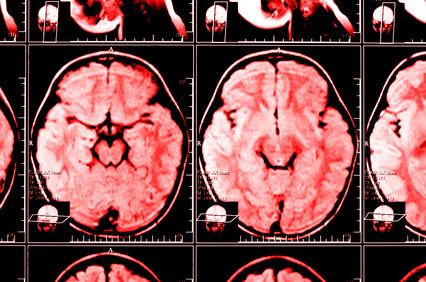
Quick Facts about Moderate Traumatic Brain Injury

Roughly 1.4 million people in the United States suffer a traumatic brain injury each year. About 75 percent of these are a minor traumatic brain injury, or mTBI. An mTBI may cause temporary change in mental status including confusion, an altered level of consciousness, or perceptual or behavioral impairments. According to the Journal of the American Academy of Orthopedic Surgeons (JAAOS), motor vehicle accidents and falls are responsible for most cases of mTBI. “Musculoskeletal injuries are often seen concurrently with some studies estimating that 50 percent of patients with orthopedic injuries also sustain a mTBI,” says lead study author Richard Uhl, MD, an orthopedic surgeon at Albany Medical Center in Albany, N.Y.
Quick Facts About mTBI:
- The Center for Disease Control and Prevention and the National Center for Injury Prevention and Control declared mTBI a public health issue and a silent epidemic.
- Patients with multisystem trauma and mTBI are almost twice as likely as those with multisystem trauma alone to have persistent cognitive impairment and to report symptoms of depression, anxiety, and posttraumatic stress disorder.
- Patients with mTBI and lower extremity injuries are three times more likely to experience cognitive and behavioral difficulties at one year post-injury than those who sustain only lower extremity trauma.
- When symptoms last for more than three months, a patient is said to have post-concussion syndrome, a disorder that can be associated with substantial financial, social and emotional issues.
- Males from newborn to 4 years old are among the population most prone to suffering mTBI and have the highest rate of TBI-related emergency department visits.
- Males are more likely than females in all age groups to sustain mTBI.
80 percent of patients who sustain an mTBI can be discharged from the hospital and will fully recover. Still, mTBI often goes undiagnosed because frequently symptoms do not become apparent until a patient resumes his or her everyday life. Part of the reason this happens is because a CT scan can come back normal even when a patient has an mTBI.
Up to 58 percent of patients will experience symptoms such as headache, fatigue, dizziness, anxiety, impaired cognition and memory deficits one month after injury. Up to 25 percent of those who suffer mTBI may have residual symptoms that sometimes lead to compromised function that can last for a year or more after the injury.
After an mTBI, patients are also at risk for Secondary Impact Syndrome (SIS) – sustaining a second concussion before symptoms of the initial concussion have healed, causing greater injury. According to study co-author and orthopedic surgeon Andrew Rosenbaum, MD, “second-impact syndrome can have devastating consequences, including rapid-onset swelling of the brain, worsening function of the brain, spinal cord, muscles or nerves, and instability of normal body functions.
If you or a loved one has suffered a traumatic brain injury, consider contacting an experienced attorney who has knowledge of brain injuries and could potentially assist you in getting compensation for any negligently caused injuries. Call today. (727)451-6900. For more information about TBI, please read about our practice http://www.dolmanlaw.com/practice-area/brain-injury/
Google+




